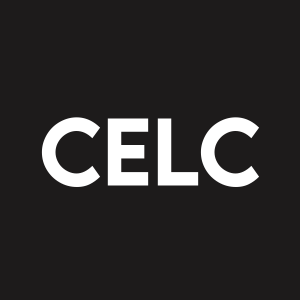Celcuity Announces First Patient Dosed in Phase 1b/2 CELC-G-201 Clinical Trial of Gedatolisib for the Treatment of Metastatic Castration Resistant Prostate Cancer
MINNEAPOLIS, Feb. 22, 2024 (GLOBE NEWSWIRE) -- Celcuity Inc. (Nasdaq: CELC), a clinical-stage biotechnology company developing targeted therapies for oncology, today announced that the first patient has been dosed in its Phase 1b/2 study (CELC-G-201) evaluating gedatolisib in combination with Nubeqa® (darolutamide), an approved androgen receptor inhibitor, for the treatment of patients with metastatic castration resistant prostate cancer (mCRPC). Gedatolisib, the company’s lead therapeutic candidate, is a potent, reversible dual inhibitor that selectively targets all Class 1 PI3K isoforms and mTORC1/2.
“We are excited to begin enrolling patients in our 201 trial and advancing towards our ultimate goal of providing a transformative therapeutic option for patients with prostate cancer,” said Igor Gorbatchevsky, M.D. Chief Medical Officer of Celcuity. “A significant unmet need remains for patients with metastatic castration resistant prostate cancer who have become resistant to a next generation androgen receptor inhibitor.”
“Evaluating a PAM inhibitor, such as gedatolisib, in combination with a next generation androgen receptor, has strong scientific rationale and is an important priority for mCRPC research,” said Karim Fizazi, M.D., Ph.D., Professor of Medicine at Institute Gustave Roussy and GETUG President, and one of the primary principal investigators in the study. “As it stands, there are limited options for patients with mCRPC whose disease progressed on or after treatment with an androgen receptor inhibitor. Gedatolisib’s differentiated mechanism of action, and comprehensive blockade of the PAM pathway, may provide an additional treatment option for these patients.”
In August 2023, Celcuity announced that it had entered into a clinical trial collaboration and supply agreement with Bayer AG to provide Nubeqa® (darolutamide) to Celcuity at no cost for the Phase 1b/2 trial.
About CEL-G-201
The CELC-G-201 Phase 1b/2 clinical trial is evaluating gedatolisib plus darolutamide, an androgen receptor (AR) inhibitor, in patients previously treated with a next generation AR inhibitor for metastatic castration resistant prostate cancer (mCRPC). The study is expected to enroll up to 54 participants with mCRPC who progressed after treatment with an androgen receptor inhibitor. In the Phase 1b portion of the study, Celcuity expects that 36 participants will be randomly assigned to receive 600 mg darolutamide combined with either 120 mg gedatolisib in Arm 1 or 180 mg gedatolisib in Arm 2. An additional 12 participants will then be enrolled in the Phase 2 portion of the study at the RP2D level to enable evaluation of 30 participants treated with the RP2D of gedatolisib.
The primary objectives of the Phase 1b portion of the trial include assessment of the safety and tolerability of gedatolisib in combination with darolutamide and determination of the recommended Phase 2 dose of gedatolisib. The primary objective of the Phase 2 portion of the trial is to assess the radiographic progression-free survival (rPFS) at six months of patients who received the RP2D.
About Celcuity
Celcuity is a clinical-stage biotechnology company focused on development of targeted therapies for treatment of multiple solid tumor indications. The company's lead therapeutic candidate is gedatolisib, a potent, reversible dual inhibitor that selectively targets all Class 1 PI3K isoforms and mTOR. Its mechanism of action and pharmacokinetic properties are highly differentiated from other currently approved and investigational therapies that target PI3K or mTOR alone or together. A Phase 3 clinical trial, VIKTORIA-1, evaluating gedatolisib in combination with fulvestrant with or without palbociclib in patients with HR+/HER2- advanced breast cancer, is currently enrolling patients. A Phase 1b/2 clinical trial, CELC-G-201, evaluating gedatolisib in combination with darolutamide in patients with metastatic castration resistant prostate cancer, is currently enrolling patients. The company’s CELsignia companion diagnostic platform is uniquely able to analyze live patient tumor cells to identify new groups of cancer patients likely to benefit from already approved targeted therapies. Celcuity is headquartered in Minneapolis. Further information about Celcuity can be found at www.celcuity.com. Follow us on LinkedIn and Twitter.
Forward-Looking Statements
This press release contains statements that constitute "forward-looking statements" including, but not limited to, our beliefs and expectations about the therapeutic and commercial potential of gedatolisib, the timing of initiating and enrolling patients in, and receiving results from, clinical trials, such as Celcuity's Phase 3 VIKTORIA-1 clinical trial and Phase 1b/2 CELC-G-201 clinical trial, other expectations about the size and structure of the Phase 1b/2 CELC-G-201 clinical trial, the costs and expected results from any ongoing or planned clinical trials, the impact on gedatolisib and Celcuity of preliminary clinical trial results, and other expectations with respect to Celcuity's lead product candidate, gedatolisib and its CELsignia platform. In some cases, you can identify forward-looking statements by terminology such as "may," "should," "expects," "plans," "anticipates," "believes," "estimates," "predicts," "potential," "intends" or "continue," and other similar expressions that are predictions of or indicate future events and future trends, or the negative of these terms or other comparable terminology. Forward-looking statements are subject to numerous risks, uncertainties, and conditions, many of which are beyond the control of Celcuity. These include, but are not limited to, those risks set forth in the Risk Factors section in Celcuity's Annual Report on Form 10-K for the year ended December 31, 2022, filed with the Securities and Exchange Commission on March 23, 2023. Readers are cautioned not to place undue reliance on these forward-looking statements, which speak only as of the date hereof. Celcuity undertakes no obligation to update these statements for revisions or changes after the date of this press release, except as required by law.
View source version of release on GlobeNewswire.com
Contacts:
Celcuity Inc.
Brian Sullivan, bsullivan@celcuity.com
Vicky Hahne, vhahne@celcuity.com
(763) 392-0123
ICR Westwicke
Maria Yonkoski, maria.yonkoski@westwicke.com
(203) 682-7167








